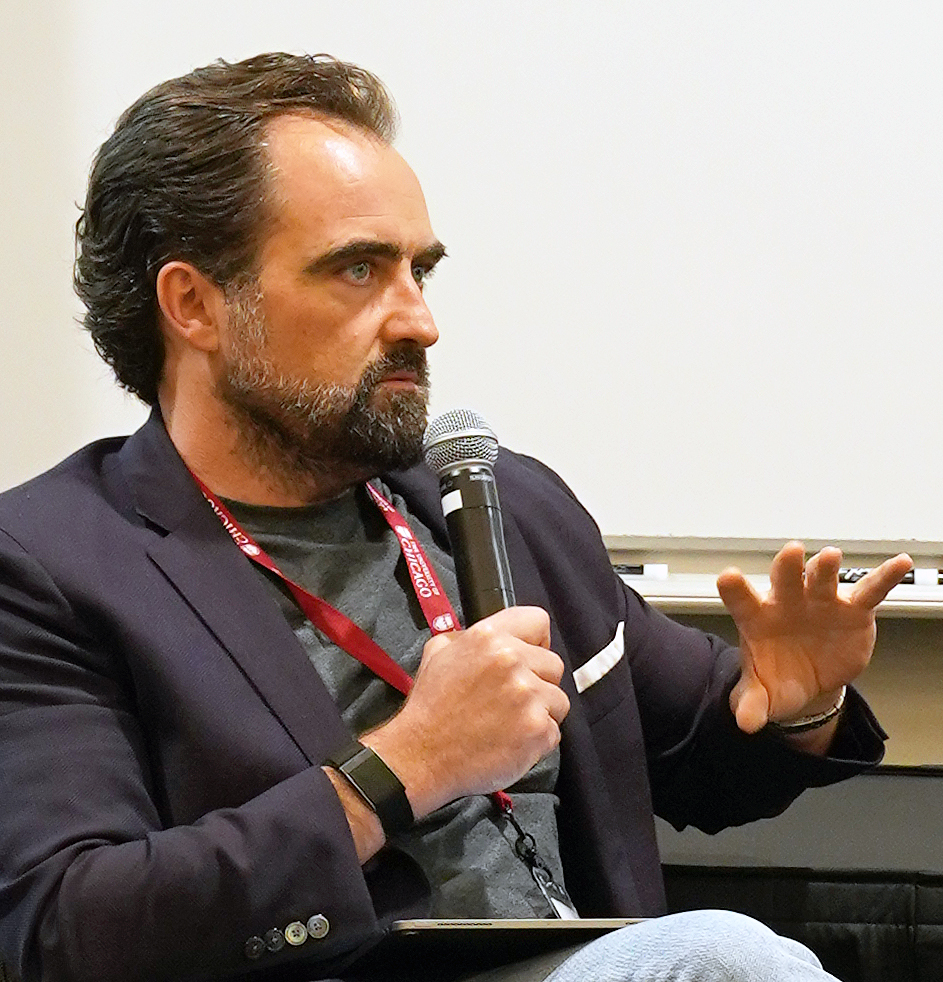“The great majority of negotiations end up being inefficient,” says Boaz Keysar, the William Benton Professor of Psychology at the University of Chicago. “Being inefficient means you could have ended with an agreement that benefitted both sides even more. It means you left value on the table.”
Keysar should know. With his Multilingualism and Decision-Making Lab, the internationally recognized scholar researches the science of how people communicate, negotiate, and make decisions. Moreover, he has witnessed countless negotiations firsthand: for decades, he has taught “The Psychology of Negotiation,” an enduringly popular undergraduate course that guides students through the negotiation process using basic principles of psychology.
Throughout his career, Keysar has focused on the variety of ways psychology underpins our miscommunications and misunderstandings, from default habits that lead to overconfidence to the ways our emotions impact our ability to perceive ambiguity. He has learned that illuminating the psychological principles animating these failures of communication can teach negotiators how to move from a zero-sum, winner-take-all mindset to one where cooperation, trust, and, ultimately, maximal rewards rule the day.
“In negotiation, there are all sorts of situations where miscommunication plays a role,” he says. “My course gives participants tools to be more confident when they negotiate.”
To spread that confidence, Keysar has highlighted some of his most powerful lessons.
Prepare Yourself.
“People don’t prepare for negotiations,” says Keysar. “There’s so much preparation that could be done, but people feel they can wing it or be spontaneous.”
While this inclination toward impulsivity should be universally avoided, Keysar notes that there are any number of habits that lead people to neglect this important part of negotiation, namely overconfidence.
“Overconfidence is deeply rooted in our psychology and can be there even when we don’t feel overconfident,” Keysar says. “It hurts our negotiation because, when we’re overconfident that we fully understand the situation, we don’t do the necessary work to prepare and learn more about the other side.”
Maintain a Cooperative Mindset.
“The psychological mindset that people bring to negotiation is a war mindset,” Keysar says. “People want to be winners, but thinking in terms of winners and losers ends up shrinking the pie. Even if you win, it’s a small slice from a pie that could’ve been much bigger.”
The problem, Keysar notes, is that a war mindset makes it very difficult to see a mutually beneficial outcome. However, he says, most negotiations can result in one.
“The alternative to having a mindset of winning is to have a mindset of maximizing my benefit,” Keysar explains. “When you see negotiation as a war, your only goal is getting a little bit more than the other side. But what does it matter what they get? What matters is what you get; and if we’re able to enlarge the pie together, we’ll have a lot more to share.”
Imagine an Alternative.
Keysar believes people don’t appreciate the range of choices they have. While this holds true for life in general in his view, it’s especially true for negotiations.
“We tend to be very myopic when we negotiate,” he says. “We only focus on the negotiation and don’t think about what’s beyond it.”
The solution, he says, is having an alternative that allows you to walk away from a negotiation—a key source of leverage. “If I don’t have to negotiate with you because I have a legitimate alternative, you have no choice but to start talking to me,” he explains.
And if you don’t have a legitimate alternative?
“Research shows that just imagining an alternative can make you more confident in a negotiation,” Keysar says. “It opens your mind to the idea that there are options in life and that gives you power.”
Create a Pathway to Trust.
“The key thing that students learn in my course is how to cooperate, how to reach the point where you establish enough trust with the other side that you can share information,” Keysar says. “When you share information, you can find ways to make everybody better off.”
To reach that point of trust, both parties need reciprocity; research has shown that cooperation breeds cooperation. In other words, if you cooperate and give away a little bit of information, the other side is obligated to reciprocate in spades. But the opposite also holds true: our fear creates feedback loops of negativity that separate us further.
“That’s the typical vicious cycle,” Keysar notes. “I don’t reveal information, you don’t reveal information, and as a result, we don’t trust each other, and we never find out which of our interests are compatible.”
Stay Flexible.
Value gets left on the table, according to Keysar, because people don’t understand the motivating interests at play in negotiations.
“We tend to get stuck in particular positions when negotiating—I want X, I want Y—and as a result it’s very difficult to reach that interest level, which is the why level,” he says. “But once you start cooperating and figuring out the different interests, you get a lot more value out of the negotiation. Getting to that point is a complicated process, and that’s what we learn in the Psychology of Negotiation course: to identify the integrative potential within a negotiation and take advantage of it so that everybody’s better off.”

Negotiation isn’t a battle—it’s science.
Great negotiators are made, not born. Practice planning negotiation strategies, building trust, creating value, and overcoming psychological barriers with UChicago's The Psychology of Negotiation course.
Register Now


